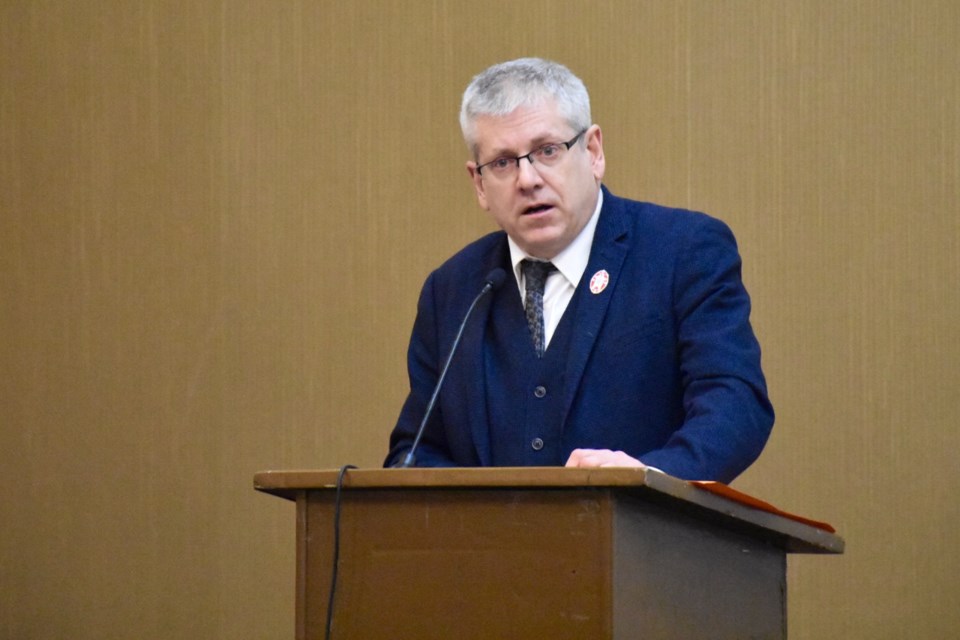Charlie Angus has asked for the support of Mushkegowuk communities to push for a national action plan on suicide prevention.
The Timmins-James Bay MP unveiled the strategy today at a Regional Emergency Summit addressing Mushkegowuk’s state of emergency on illegal drugs and alcohol.
“Our communities have suffered an extraordinary loss of people and hope in the last number of years and they need action. We need a commitment to move forward. Since Christmas, I know of eight people who’ve been lost in the larger Treaty 9 region to suicide,” said Angus.
“And that’s just from people contacting me and me talking to individual families, there may be more. Eight people. That should never be a number that high in any region, in any country.”
The plan would include the creation of a national public health surveillance program to prevent suicide and identify at-risk groups, commit to the resources needed to respond to suicide prevention priorities, establish a national guideline for best practices, increase media knowledge, establish national standards for training people engaged in suicide prevention work, and more.
For the Private Members’ Bill, Angus said he would work with all parties, with indigenous and non-indigenous people, young people and organizations across Canada.
Inspired by its leadership, he chose to unveil the plan at the Mushkegowuk gathering.
“I’ve been extremely inspired by the leadership I’ve seen in the communities, and I’ve also been very haunted by so many young people that I’ve seen who’ve left this world because they thought no one cared. And it’s up to us as adults, parents and leaders to show them that we care for them because they are our future,” he said.
Quebec implemented a suicide prevention strategy in 1999.
According to Angus, the province “lowered the level of suicide by 50 per cent in Quebec region, so as a nation we can do much better.”
He also noted that suicide is not an indigenous problem.
“There is no history of suicide in the indigenous communities. This is the result of social pressures of today,” he said, explaining that social pressures of today can be changed.
“There’s nothing genetic about the appearance of suicide in the communities. They are the result of factors that can be addressed and if we work together we can change them,” he said.



